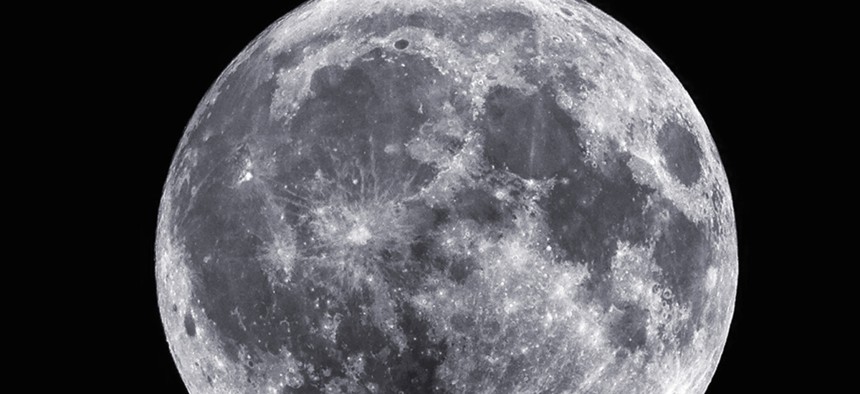The Israeli Finalist in Google’s $20 Million Race to the Moon Won’t Make It to the Starting Line

NASA
The Google Lunar XPrize is a contest offering $20 million to the first private team to send a robot to the moon.
The Google Lunar XPrize, a contest offering $20 million to the first private team to send a robot to the moon—and explore the lunar surface for the first time since China’s space agency landed a rover in 2014—is now down to four competitors with just over eight months until the race comes to an end.
SpaceIL, formed by veterans of the Israeli tech sector, will not be able to launch by the year-end deadline set by the race’s organizers, according to Spaceflight Industries, the space transport company hired to carry the team’s spacecraft on a Falcon 9 rocket launch it purchased from SpaceX.
A Spaceflight executive tells Quartz that SpaceIL’s rocket is still in the launch queue but will be unable to launch before 2018, effectively scotching SpaceIL’s chance at the contest barring a last-minute extension to the deadline.
SpaceIL was one of the first teams to be certified as a finalist by signing a launch contract in 2015. Because it had a spot on a Falcon 9 for the flight, it was secure in the knowledge that it was flying on a proven vehicle—a luxury not all of its competitors have. But SpaceIL’s moon probe, which weighs only a few hundred kilograms and is the size of a dishwasher, would have been one of several payloads on Spaceflight’s rocket. According to SpaceIL spokesperson Revital Alcalay, technical challenges in fitting it into the rocket alongside other cargo, so that it is deployed at the right time during flight, have led to delays.
It’s not the only Lunar XPrize participant facing long odds of making it across the starting line. Moon Express, a US startup, has secured government approval and significant funding, but is currently contracted to fly on a vehicle built by Rocket Labs, a promising new rocket builder but one that has yet to launch its first test-flight. To go from first test-flight of a rocket to commercial operation in seven months would be remarkable.
TeamIndus, an Indian team with backers from the country’s tech sector and its space agency, has secured perhaps the most reliable vehicle available, the home-grown Polar Satellite Launch Vehicle commercialized by the Indian Space Research Organization (ISRO). TeamIndus intends to share its rocket with fellow competitor Hakuto, a team from Japan. But TeamIndus has not yet raised the almost $70 million it needs to finish its spacecraft and finance the launch. The final participant, Team Synergy, is made up of several teams that combined forces in order to secure the resources needed to become finalists in the contest. It’s relying on a rocket constructed by Interorbital Systems, which also has yet to be tested.
An extension wouldn’t be a first for the contest, which was organized by the XPrize Foundation, sponsored by Google, and created as a followup to the successful $10 million Ansari XPrize, which was awarded in 2004 to the first privately funded vehicle to reach space twice in a two-week period. The current contest, which requires the landing of a lunar probe that can traverse the Moon’s surface and send back digital images, began in 2007 with a 2012 deadline that has since been moved twice.
The current contest is for a privately funded lunar probe that could traverse the Moon’s surface and send back digital pictures and video, with goal of incentivizing private innovation in space.
This year was intended to be the annus mirabilis for the race after the organizers, in January, certified just five teams as finalists, with signed launch contracts for 2017 serving as evidence that they could be considered serious contenders. Through the first quarter of the year, however, progress appears minimal.
The Israeli team says it intends to keep working, noting that competition rules allow them to remain in the race until the termination deadlines hits, or another extension is made. Meanwhile, Chanda Gonzales-Mowrer, a senior director at the prize organization, had this to say in a statement to Quartz:
“All of these teams have provided sufficient documentation of their launch plans, including significant financial commitments to launch providers or partners, for a 2017 mission. If launch schedules are shifted, or if teams are encountering other technological or financial obstacles, the competition rules require teams to formally communicate these changes to XPRIZE for review in the coming months. We remain optimistic that we will see one (or more) teams successfully complete the mission requirements of the Google Lunar XPRIZE during the current timeline.”






